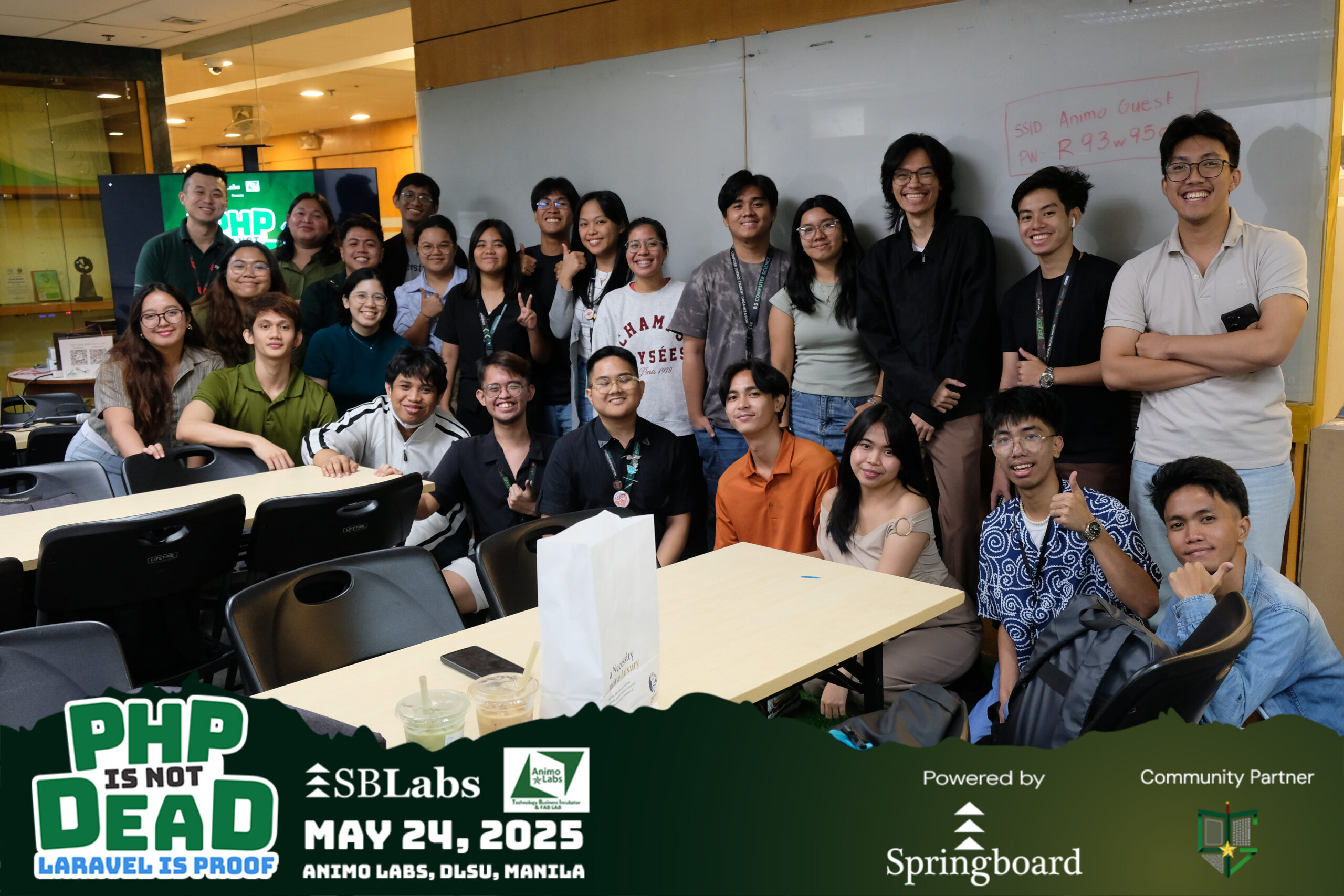July 29, 2024 — 3 min read
The Rise of Skills-Based Hiring: Prioritizing Competence Over Degrees
The Philippines, a dynamic and rapidly growing economy, faces significant challenges in talent acquisition. Traditional education, long seen as the primary pathway to employment, is increasingly taking a back seat to skills assessment. Employers recognize that a formal degree does not always correlate with job performance, leading to a rise in competency-based hiring. As businesses expand, the demand for skilled professionals intensifies, creating a competitive landscape for employers. This trend reflects a growing recognition that practical skills and competencies often outweigh formal educational qualifications in determining an individual’s ability to perform effectively in the workplace.

A Shift from Degrees to Competencies
Skills-based hiring is gaining traction as employers shift focus from degrees and academic qualifications to practical skills. While education holds significant value, it often fails to accurately reflect an individual’s practical abilities or readiness for specific roles. Employers now understand that having a degree does not necessarily equate to expertise in essential tasks or job-specific skills. Historically, qualifications were the primary criterion for candidate suitability, but the current trend emphasizes competencies. 38% of businesses now prefer to recruit applicants based on technical capabilities rather than traditional qualifications like education and experience (Singh, n.d).
The Competency-Based Hiring Model
The Competency Framework serves as the foundation for all stages of the hiring process, from sourcing and resume analysis to competency-based interviewing, hiring decisions, and job offers. It aims to equip decision-makers with a reliable method to ensure that only high-quality employees who meet the necessary job competencies are onboarded into the organization (Competency Based Recruitment and Selection | People Management Association of the Philippines, n.d.). Traditionally favoring degree holders, the Philippine job market is experiencing a significant shift. Companies in various sectors are increasingly valuing candidates’ practical skills, work experience, and growth potential over academic achievements alone (Reyes & Cruz, 2022). This shift is fueled by various factors, such as rapid technological advancements, changing industry requirements, and a disconnect between traditional education and modern workplace needs.
Rapid Technological Advancement in Recruitment
The Philippine job market has transformed significantly due to rapid digitalization, changing workforce dynamics, and recent technological advancements. Technology now allows employers to reach a larger pool of candidates through social media, job boards, and virtual job fairs. Automation tools, such as chatbots, applicant tracking systems, and AI-driven resume screening, have made the hiring process more efficient. Additionally, the widespread use of video interviews and virtual assessments has reduced hiring costs and enabled engagement with applicants from any location (Daly, 2024). The increase in remote work and flexible arrangements has led recruiters to utilize video conferencing and collaboration tools for virtual interviews, creating a more inclusive hiring process that overcomes physical barriers and expands the talent pool (Navigating the Evolving Landscape of Recruitment in the Philippines, 2023).
In one of our recent articles, The Role of AI in Transforming Talent Acquisition, it was mentioned how Artificial Intelligence (AI) has rapidly transformed numerous aspects of our lives, including recruitment, where it is revolutionizing how companies attract, assess, and hire talent. As organizations strive to find the suitable candidates efficiently, AI tools are becoming indispensable. By automating tasks like resume screening and providing data-driven insights through predictive analytics, AI improves productivity and reduces bias in hiring. However, ethical considerations and data protection remain critical as AI continues to shape the future of recruitment and human resources.
The Future of Hiring in the Philippines
As the trend toward skills-based hiring continues to gain momentum, it will likely profoundly impact the Philippine job market. Educational institutions may need to adapt by emphasizing practical training and skills development, ensuring that graduates are better prepared to meet workplace demands. Meanwhile, employers must refine their recruitment processes, incorporating more robust methods for assessing competencies and potential. The rise of skills-based hiring in the Philippines represents a significant and positive shift in the country’s employment landscape. This approach promises to create a more dynamic, inclusive, and efficient job market by prioritizing competence over degrees. As this trend continues to gain momentum, it has the potential to reshape hiring practices and the broader educational and economic systems in the Philippines.
References
Competency Based Recruitment and Selection | People Management Association of the Philippines. (n.d.). PMAP. Retrieved July 23, 2024, from https://www.pmap.org.ph/training-events/cbrs-may/
Daly, C. (2024, March 13). The Evolution of Recruitment in the Philippines: Best Practices and Future Trends. Curran Daly & Associates. Retrieved July 19, 2024, from https://currandaly.com/the-evolution-of-recruitment-in-the-philippines-best-practices-and-future-trends/
Navigating the Evolving Landscape of Recruitment in the Philippines. (2023, October 18). LinkedIn.
https://www.linkedin.com/pulse/navigating-evolving-landscape-recruitment-philippines-08kic/
Reyes, & Cruz. (2022). Reset and Rebuild for a Better Philippines in the Post-pandemic World. PIDS. Retrieved July 23, 2024, from https://pidswebs.pids.gov.ph/CDN/PUBLICATIONS/pidsepm2020-2021.pdf
Singh, R. (n.d.). Why Skills-Based Hiring is the Future of Recruitment. Recruiter’s Angel. https://www.thehighereducationreview.com/opinion/recruiters-angle/why-skillsbased-hiring-is-the-future-of-recruitment-fid-587.html#:~:text=According%20to%20an%20OECD%20study,such%20as%20education%20and%20experience.
The Rise of Skills-Based Hiring: Prioritizing Competence Over Degrees
The Philippines, a dynamic and rapidly growing economy, faces significant challenges in talent acquisition. Traditional education, long seen as the primary pathway to employment, is increasingly taking a back seat to skills assessment. Employers recognize that a formal degree does not always correlate with job performance, leading to a rise in competency-based hiring. As businesses expand, the demand for skilled professionals intensifies, creating a competitive landscape for employers. This trend reflects a growing recognition that practical skills and competencies often outweigh formal educational qualifications in determining an individual’s ability to perform effectively in the workplace.
July 26, 2024 — 3 min read

A Shift from Degrees to Competencies
Skills-based hiring is gaining traction as employers shift focus from degrees and academic qualifications to practical skills. While education holds significant value, it often fails to accurately reflect an individual’s practical abilities or readiness for specific roles. Employers now understand that having a degree does not necessarily equate to expertise in essential tasks or job-specific skills. Historically, qualifications were the primary criterion for candidate suitability, but the current trend emphasizes competencies. 38% of businesses now prefer to recruit applicants based on technical capabilities rather than traditional qualifications like education and experience (Singh, n.d).
The Competency-Based Hiring Model
The Competency Framework serves as the foundation for all stages of the hiring process, from sourcing and resume analysis to competency-based interviewing, hiring decisions, and job offers. It aims to equip decision-makers with a reliable method to ensure that only high-quality employees who meet the necessary job competencies are onboarded into the organization (Competency Based Recruitment and Selection | People Management Association of the Philippines, n.d.). Traditionally favoring degree holders, the Philippine job market is experiencing a significant shift. Companies in various sectors are increasingly valuing candidates’ practical skills, work experience, and growth potential over academic achievements alone (Reyes & Cruz, 2022). This shift is fueled by various factors, such as rapid technological advancements, changing industry requirements, and a disconnect between traditional education and modern workplace needs.
Rapid Technological Advancement in Recruitment
The Philippine job market has transformed significantly due to rapid digitalization, changing workforce dynamics, and recent technological advancements. Technology now allows employers to reach a larger pool of candidates through social media, job boards, and virtual job fairs. Automation tools, such as chatbots, applicant tracking systems, and AI-driven resume screening, have made the hiring process more efficient. Additionally, the widespread use of video interviews and virtual assessments has reduced hiring costs and enabled engagement with applicants from any location (Daly, 2024). The increase in remote work and flexible arrangements has led recruiters to utilize video conferencing and collaboration tools for virtual interviews, creating a more inclusive hiring process that overcomes physical barriers and expands the talent pool (Navigating the Evolving Landscape of Recruitment in the Philippines, 2023).
In one of our recent articles, The Role of AI in Transforming Talent Acquisition, it was mentioned how Artificial Intelligence (AI) has rapidly transformed numerous aspects of our lives, including recruitment, where it is revolutionizing how companies attract, assess, and hire talent. As organizations strive to find the suitable candidates efficiently, AI tools are becoming indispensable. By automating tasks like resume screening and providing data-driven insights through predictive analytics, AI improves productivity and reduces bias in hiring. However, ethical considerations and data protection remain critical as AI continues to shape the future of recruitment and human resources.
The Future of Hiring in the Philippines
As the trend toward skills-based hiring continues to gain momentum, it will likely profoundly impact the Philippine job market. Educational institutions may need to adapt by emphasizing practical training and skills development, ensuring that graduates are better prepared to meet workplace demands. Meanwhile, employers must refine their recruitment processes, incorporating more robust methods for assessing competencies and potential. The rise of skills-based hiring in the Philippines represents a significant and positive shift in the country’s employment landscape. This approach promises to create a more dynamic, inclusive, and efficient job market by prioritizing competence over degrees. As this trend continues to gain momentum, it has the potential to reshape hiring practices and the broader educational and economic systems in the Philippines.
References
Competency Based Recruitment and Selection | People Management Association of the Philippines. (n.d.). PMAP. Retrieved July 23, 2024, from https://www.pmap.org.ph/training-events/cbrs-may/
Daly, C. (2024, March 13). The Evolution of Recruitment in the Philippines: Best Practices and Future Trends. Curran Daly & Associates. Retrieved July 19, 2024, from https://currandaly.com/the-evolution-of-recruitment-in-the-philippines-best-practices-and-future-trends/
Navigating the Evolving Landscape of Recruitment in the Philippines. (2023, October 18). LinkedIn.
https://www.linkedin.com/pulse/navigating-evolving-landscape-recruitment-philippines-08kic/
Reyes, & Cruz. (2022). Reset and Rebuild for a Better Philippines in the Post-pandemic World. PIDS. Retrieved July 23, 2024, from https://pidswebs.pids.gov.ph/CDN/PUBLICATIONS/pidsepm2020-2021.pdf
Singh, R. (n.d.). Why Skills-Based Hiring is the Future of Recruitment. Recruiter’s Angel. https://www.thehighereducationreview.com/opinion/recruiters-angle/why-skillsbased-hiring-is-the-future-of-recruitment-fid-587.html#:~:text=According%20to%20an%20OECD%20study,such%20as%20education%20and%20experience.
The Rise of Skills-Based Hiring: Prioritizing Competence Over Degrees
The Philippines, a dynamic and rapidly growing economy, faces significant challenges in talent acquisition. Traditional education, long seen as the primary pathway to employment, is increasingly taking a back seat to skills assessment. Employers recognize that a formal degree does not always correlate with job performance, leading to a rise in competency-based hiring. As businesses expand, the demand for skilled professionals intensifies, creating a competitive landscape for employers. This trend reflects a growing recognition that practical skills and competencies often outweigh formal educational qualifications in determining an individual’s ability to perform effectively in the workplace.

July 26, 2024 — 3 min read
A Shift from Degrees to Competencies
Skills-based hiring is gaining traction as employers shift focus from degrees and academic qualifications to practical skills. While education holds significant value, it often fails to accurately reflect an individual’s practical abilities or readiness for specific roles. Employers now understand that having a degree does not necessarily equate to expertise in essential tasks or job-specific skills. Historically, qualifications were the primary criterion for candidate suitability, but the current trend emphasizes competencies. 38% of businesses now prefer to recruit applicants based on technical capabilities rather than traditional qualifications like education and experience (Singh, n.d).
The Competency-Based Hiring Model
The Competency Framework serves as the foundation for all stages of the hiring process, from sourcing and resume analysis to competency-based interviewing, hiring decisions, and job offers. It aims to equip decision-makers with a reliable method to ensure that only high-quality employees who meet the necessary job competencies are onboarded into the organization (Competency Based Recruitment and Selection | People Management Association of the Philippines, n.d.). Traditionally favoring degree holders, the Philippine job market is experiencing a significant shift. Companies in various sectors are increasingly valuing candidates’ practical skills, work experience, and growth potential over academic achievements alone (Reyes & Cruz, 2022). This shift is fueled by various factors, such as rapid technological advancements, changing industry requirements, and a disconnect between traditional education and modern workplace needs.
Rapid Technological Advancement in Recruitment
The Philippine job market has transformed significantly due to rapid digitalization, changing workforce dynamics, and recent technological advancements. Technology now allows employers to reach a larger pool of candidates through social media, job boards, and virtual job fairs. Automation tools, such as chatbots, applicant tracking systems, and AI-driven resume screening, have made the hiring process more efficient. Additionally, the widespread use of video interviews and virtual assessments has reduced hiring costs and enabled engagement with applicants from any location (Daly, 2024). The increase in remote work and flexible arrangements has led recruiters to utilize video conferencing and collaboration tools for virtual interviews, creating a more inclusive hiring process that overcomes physical barriers and expands the talent pool (Navigating the Evolving Landscape of Recruitment in the Philippines, 2023).
In one of our recent articles, The Role of AI in Transforming Talent Acquisition, it was mentioned how Artificial Intelligence (AI) has rapidly transformed numerous aspects of our lives, including recruitment, where it is revolutionizing how companies attract, assess, and hire talent. As organizations strive to find the suitable candidates efficiently, AI tools are becoming indispensable. By automating tasks like resume screening and providing data-driven insights through predictive analytics, AI improves productivity and reduces bias in hiring. However, ethical considerations and data protection remain critical as AI continues to shape the future of recruitment and human resources.
The Future of Hiring in the Philippines
As the trend toward skills-based hiring continues to gain momentum, it will likely profoundly impact the Philippine job market. Educational institutions may need to adapt by emphasizing practical training and skills development, ensuring that graduates are better prepared to meet workplace demands. Meanwhile, employers must refine their recruitment processes, incorporating more robust methods for assessing competencies and potential. The rise of skills-based hiring in the Philippines represents a significant and positive shift in the country’s employment landscape. This approach promises to create a more dynamic, inclusive, and efficient job market by prioritizing competence over degrees. As this trend continues to gain momentum, it has the potential to reshape hiring practices and the broader educational and economic systems in the Philippines.
References
Competency Based Recruitment and Selection | People Management Association of the Philippines. (n.d.). PMAP. Retrieved July 23, 2024, from https://www.pmap.org.ph/training-events/cbrs-may/
Daly, C. (2024, March 13). The Evolution of Recruitment in the Philippines: Best Practices and Future Trends. Curran Daly & Associates. Retrieved July 19, 2024, from https://currandaly.com/the-evolution-of-recruitment-in-the-philippines-best-practices-and-future-trends/
Navigating the Evolving Landscape of Recruitment in the Philippines. (2023, October 18). LinkedIn.
https://www.linkedin.com/pulse/navigating-evolving-landscape-recruitment-philippines-08kic/
Reyes, & Cruz. (2022). Reset and Rebuild for a Better Philippines in the Post-pandemic World. PIDS. Retrieved July 23, 2024, from https://pidswebs.pids.gov.ph/CDN/PUBLICATIONS/pidsepm2020-2021.pdf
Singh, R. (n.d.). Why Skills-Based Hiring is the Future of Recruitment. Recruiter’s Angel. https://www.thehighereducationreview.com/opinion/recruiters-angle/why-skillsbased-hiring-is-the-future-of-recruitment-fid-587.html#:~:text=According%20to%20an%20OECD%20study,such%20as%20education%20and%20experience.





